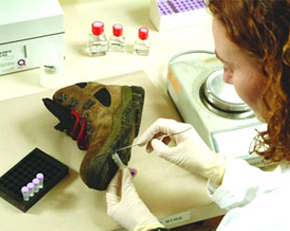Forensic Chemistry Degree
Activities carried out in Crime Scene Investigation has made forensic chemistry a very interesting field among students who are about to graduate from high schools. The need for Crime Scene Investigation has equally made the demand and importance of forensic chemists to increase in the last few years. Forensic chemistry students learn physical and biological sciences to enable them work with law enforcement agencies when looking for criminals. Forensic chemists work in the criminal science department of law enforcement agencies and other government agencies to find criminals when other methods have proved abortive. Forensic chemists also analyze food and drug samples before they are approved by the Food and Drug Administration. Students who aim to have a career that can help them influence the lives of others are encouraged to undertake a program that can give them a degree in forensic chemistry.
A Brief Overview of Forensic Chemistry Degree
Here’s a quick glance at what to expect with a forensic chemistry degree:
- The US department of labor has reported that there will be lots of jobs for forensic science technicians in 2014. These positions will be filled by forensic chemists that have at least an associate's degree.
- A group of non profit institutions known as National Academies that research on the needs of the US has called for increased funding, support and education in forensic chemistry.
- There are several positions waiting to be filled by forensic chemists and it appears that forensic chemistry students presently in schools cannot fill up these positions. In other words, there is still an increasing need for forensic chemists in the US today.
- Forensic chemists work in local crime labs, state crime labs, federal crime labs, law enforcement agencies, medical examiners, local and state offices, hospitals, toxicology labs, analytical labs and pharmaceutical industries.
Course Outlines of Forensic Chemistry Degree Programs
Students studying forensic chemistry are trained with the knowledge, theories and practical skills they require to conduct scientific tests in crime labs around the US. The general course outlines for these students include:
- Organic chemistry
- Toxicology
- Analytical chemistry
- Ethics
- Judicial process
- General chemistry
- Biochemistry
- Physics and
- Criminal investigation
Best Schools for a Degree in Forensic Chemistry
Taking courses at these schools will maximize your chances of succeeding in the forensic chemistry field:
- University of Mississippi, Oxford- The degree program in Forensic chemistry is handled by the department of chemistry and biochemistry. Here, the students learn the techniques needed to test items found at crime scenes.
- University of Central Florida, Orlando- According to the US News and World Report, the University of Central Florida will soon be among the top ten schools. You can get a Bachelor of Science degree in Forensic science there by seeking admission into the college of science. They also have the accreditation to offer Master's degree programs.
- Loyola University, New Orleans- the US News and World Report 2011 ranks the Loyola University in New Orleans as the seventh out of all the southern universities. Forensic chemistry is organized there by the college of humanities and sciences. They offer Bachelor of Science degree in the course.
- Boston University- Boston University provides bachelors and master's degree programs that are organized by the department of biomedical forensic sciences.
- Texas A&M University, College Station- Students learn how to collect and store items from crime scenes.

